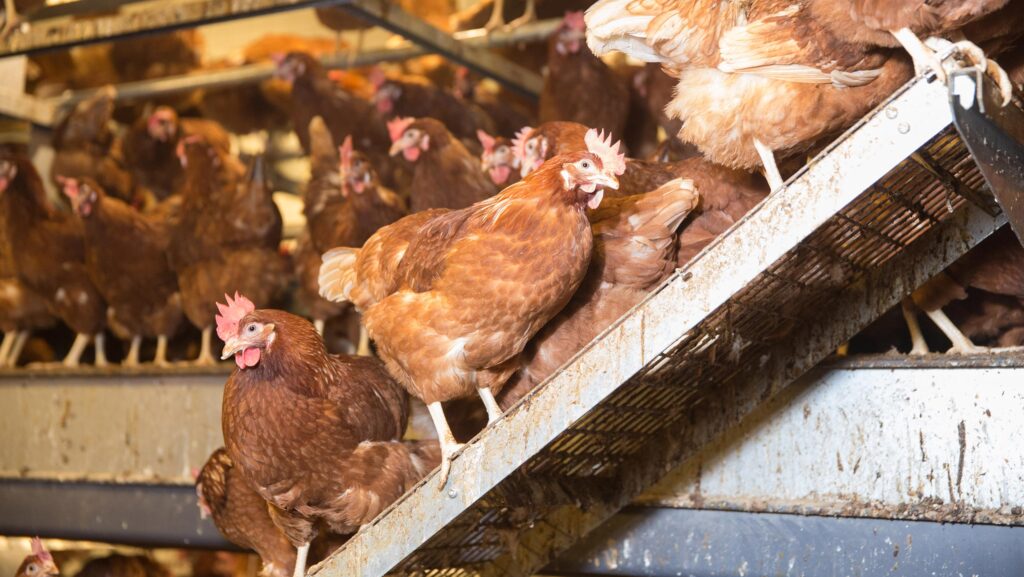Over a million layers to be culled as bird flu strikes indoor flock
 © Tim Scrivener
© Tim Scrivener Avian influenza has struck one of the largest and most modern egg laying sites in the country, with more than a million birds now expected to be culled in an attempt to prevent further spread.
Concerns were first raised in the barn egg unit at Griffiths Family Farms – part of Oaklands Farm Eggs – on Saturday (18 January), affecting one flock at the company’s production site near Wem in north Shropshire.
See also: Free-range poultry ordered indoors as avian influenza mounts
A statement from Defra on Monday evening (20 January) confirmed the presence of the highly pathogenic H5N1 strain of the disease at the site.
A 3km protection zone and 10km surveillance zone were instantly declared around the premises.
While the disease was contained to one shed of the 24 units on site, the Animal and Plant Health Agency is expected to require the culling of all the flocks on site – involving the slaughter of more than a million birds.
The site is also home to Oaklands’ main egg packing centre and that too has had to cease operations.
A company statement explained that eggs from its farms in Wiltshire and Devon, and from contract producers, will be diverted to Oaklands’ other standalone packing centre at Ruabon, near Wrexham.
This would take a couple of days to achieve, and could result in reduced supplies to customers.
According to the firm’s website, the firm packs more than 1bn eggs a year, from its own flock of 2.5 million birds and another 1 million contracted birds, with an annual turnover of around £75m.
Response
“This is obviously devastating news for the business and the Griffiths family personally,” said company director Elwyn Griffiths.
“We will now work as quickly as possible to ensure the welfare of hens on the rest of the site, and also to ensure the wellbeing of farm staff who are caring for the hens on the ground.”
British Free-Range Egg Producers Association policy adviser Gary Ford said the outbreak at arguably the country’s biggest laying sites would have wider impacts for many associated businesses, including feed suppliers, pullet rearers, end of lay processors, and hauliers.
“Our thoughts are with the Griffiths family and their staff. For the wider industry this will have long-term consequences,” he said.
“The site at Wem processes about half the UK’s barn egg production. It will have a very significant impact.”
Other cases
The appearance of H5N1 in Shropshire follows a spate of outbreaks across the country.
In recent days there have been cases near Mablethorpe in Lincolnshire (144,000 free-range layers), near Rye in East Sussex (240 free-range layers), and near Pocklington in East Riding of Yorkshire (fattening turkeys).
In total, there have been 19 cases of H5N1 in England, and one case of H5N5, since 1 October 2024, the start of the bird flu “season”.
A mandatory housing order was declared on 23 December 2024 for all poultry in the East Riding of Yorkshire, the City of Kingston upon Hull, and all districts in Lincolnshire, Norfolk and Suffolk
Last week, the first case of H5N1 was detected in a backyard flock of hens in Angus, Scotland.
Northern Ireland has also introduced an avian influenza prevention zone, with enhanced biosecurity requirements, following confirmation of H5N1 in a wild goose, a buzzard and a whooper swan.
